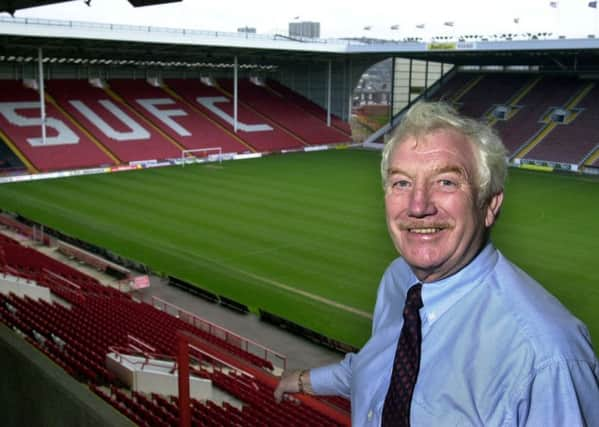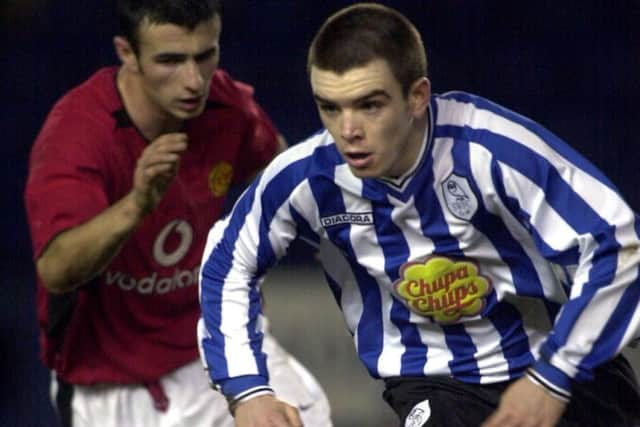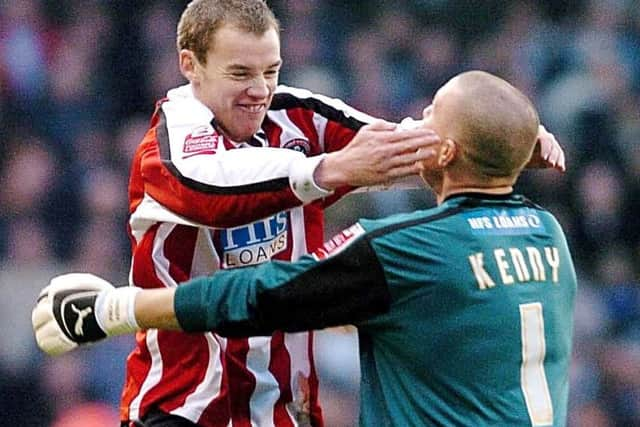Crossing the Steel City divide - success and failure of those who played for Sheffield United AND Sheffield Wednesday


Clarke was on the Blades’ bench in last night’s defeat against Derby. Though the pre-season fixture is not the start United would have wanted, it is still too early to tell whether this signing will be successful.
Fans of the Blades’ will surely be hoping he can go some way to replicating the success he enjoyed throughout his three seasons with the city rivals Wednesday, as he claimed 18 goals in 45 appearances. R
Advertisement
Hide AdAdvertisement
Hide Adegardless of what happens now, Clarke is part of an exclusive circle of players who have played on both sides of the Steel City divide.


In light of this, The Yorkshire Post looks back at some of those players to make the controversial move, to decide which changes worked, and which didn’t.
Leigh Bromby: Success
As a product of the Sheffield Wednesday youth academy, Bromby plied his trade with the Owls for four seasons, during which time the central defender amassed 100 appearances, solidifying himself as a key figure in the team.
Since Wednesday practically raised Bromby, the decision to join United in 2004 surely stung fans.


Advertisement
Hide AdAdvertisement
Hide AdWhat made it worse is just how fruitful the change turned out to be. Bromby played for four seasons (and one that saw them promoted to the Premier League) at United before moving to Watford.
Bromby later returned to Bramall Lane in 2008 to play another season on loan.
Throughout his two spells with the Blades, he made 122 appearances and scored seven goals.
Terry Curran: Failure


The tricky winger himself is practically Owls royalty. Lauded as hero of ‘the boxing day massacre’, (the day in 1979 that saw Wednesday trounce their rivals 4-0) Curran made 138 appearances and scored 39 goals for his beloved club.
Advertisement
Hide AdAdvertisement
Hide AdTo call his decision to move to United in 1982 ‘controversial’ would be an understatement. Curran himself refers to the move as the “biggest regret” of his career, claiming that he never felt comfortable there with many fans taking an instant disliking to him. After playing just one season for the Blades, Curran moved to Everton.
Owen Morrison: Failure
Another player that made a direct swap from the Owls to the Blades, Morrison began his senior career at Hillsborough in 1998. He went on to play 55 league matches and score eight goals in just under five seasons with Wednesday.


When Neil Warnock managed to snatch him up in 2003, there was hope that the winger would be just as prosperous for United as he had been for their rivals. It did not turn out that way.
Morrison was released just six months later, and in his eight games for the Blades struggled to make a lasting impression with coaches and fans alike.
Alan Quinn: Success
Advertisement
Hide AdAdvertisement
Hide AdQuinn also began his professional career at Hillsborough. He started out slowly, making just two appearances in his first two seasons, but by 1999 he had cemented himself as a key player for the Owls. He went on to make over 150 appearances and score 16 goals, before being signed by United on a free transfer in 2004.
Quinn’s move was a prosperous one, and annoyingly so for Wednesday fans. Quinn played 97 matches with the Blades (19 of which were in the Premier League) and scored 11 goals.
To add insult to injury, Quinn earned himself the distinct accolade of being the only player to score for both teams in a Steel City derby.
Derrick Geary: Success
Upon joining the Owls back in 1997, Geary quickly became a fan favourite. The full-back made a total of 121 appearances and in the 2001-02 season, was named player of the season.
Advertisement
Hide AdAdvertisement
Hide AdThough he did play briefly at Stockport, Geary’s switch to United in 2004 was still pretty quick, making it a tough one to swallow for Wednesday fans.
What made it even tougher was his 26 Premiership appearances and 94 total appearances for the Blades. Geary proved just as impressive at United as he had at Hillsborough, and ultimately enjoyed a solid Sheffield-based career.
Derek Dooley: Success
Saving the best until last, Derek Dooley is perhaps the only man who can be said to be equally adored by both sides of the Steel City rivalry.
At 21, the raw, talented Dooley scored an unbelievable 46 goals in 30 appearances during his first senior season, carrying the Owls to the division title. In 1953, a collision with a goalkeeper resulted in Dooley’s leg being amputated, tragically ending his playing career.
Advertisement
Hide AdAdvertisement
Hide AdHowever, overcoming adversity in heroic fashion, Dooley went on to become the Owls’ manager in 1971 before being rather harshly dismissed by a new board of directors.
After that, Dooley made the move to United, where he had to endure some tough times with the Blades.
But endure them he did, and in 1999 Dooley was appointed chairman of the club.